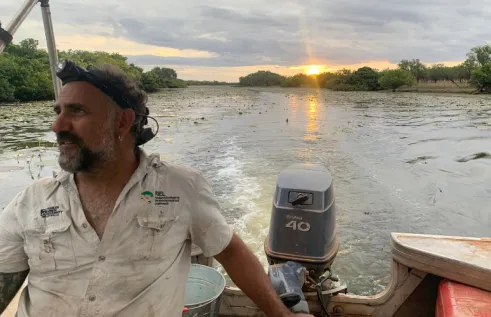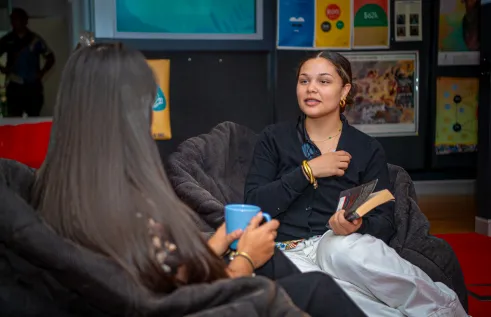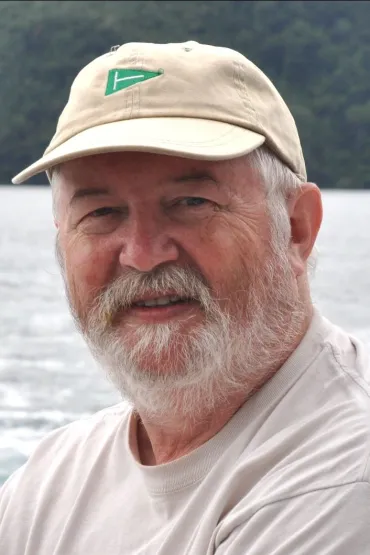RIEL seminar series
Arrows on Maps: Five decades of angler-driven gamefish tagging in Australia
| Presenter | Dr Julian Pepperell | |
|---|---|---|
| Date/Time |
to
|
|
| Contact person | E: riel.outreach@cdu.edu.au | |
| Location | CDU Casuarina Campus Yellow 1.1.39 and online | |
| Open to | Public | |
The NSW DPI Game Fish Tagging Program is the largest saltwater tagging program of its kind in the world and has been in operation since 1973. It is used to obtain information on the biology (distribution, movement, growth, exploitation) of billfish, tunas, sharks and sport fish and encourages game fishers to participate in the management of the fishery. Tags are issued to anglers and when an angler catches a fish it is tagged and released, the details of the capture are recorded on a tag card with the corresponding tag number. The card is returned to DPI.
The tagging data is used by scientists to study the lives and habits of these fish species. The migratory habits of the tagged fish are observed by measuring the distance and direction travelled between tagging and recapture, and this can be linked with environmental factors. Growth patterns are also monitored. The observations also enable scientists to study the structure of fish stocks and assess whether there is any mixing between populations that are geographically distant from one another. This information is vital to improve the understanding and management of valuable game and sport fish species.
Now approaching its 500,000th tagged fish, Julian will present a summary of the Program to date and discuss some of his adventures travelling to the other ends of arrows on maps depicting movements of black marlin all over the Indo-Pacific
Julian is an independent fisheries researcher, consultant and marine science writer. He was senior biologist at the New South Wales Fisheries Department for 15 years, specializing in marine recreational fisheries before forming his own research company in 1991. Julian has conducted numerous research projects in partnership with the private and Government sectors on most aspects of recreational fisheries – with particular emphasis on billfish, tuna and pelagic sharks. He has co-supervised post-graduate students at many Australian and US universities.
He sits on several Australian Government advisory committees including the Tropical Tuna and Billfish Resource Assessment Group and was a recent member of the National Expert Scientific Panel on Commonwealth Marine Reserves He is a past President of the Australian Society for Fish Biology, recipient of a Lifetime Achievement Award from The Billfish Foundation, a Conservation Award from the International Game Fish Association (IGFA) and was recently inducted into the IGFA Hall of Fame.
He has authored several books including ‘Fishes of the Open Ocean: A natural history and illustrated guide’ which won the Royal Zoological Society’s Whitley Award for Australia’s Best Natural History book of 2010. The book was also short listed for the Queensland Premier’s Literary Awards in the same year. Julian has authored or co-authored over 120 scientific papers, reports and book chapters. He has also published more than 170 feature articles and 850 columns in fishing-related magazines, translating and interpreting marine and fisheries science to the general public.
Related Events

STATE OF THE DIS-UNION: Media Literacy in the age of AI
The CDU Library is hosting a free panel discussion featuring Northern Territory journalists who will discuss media literacy, truth, and storytelling in the AI era. Attendees can learn how AI is transforming media, ask questions, and improve their understanding of navigating information in today's landscape.
Read more about STATE OF THE DIS-UNION: Media Literacy in the age of AI
Trophic dynamics of free-flowing tropical rivers
Colton Perna's PhD research explores how river flows and flooding shape freshwater fish communities in tropical rivers, using fatty acids to track how hydrology influences food webs and nutritional pathways. His findings highlight the critical importance of river flow and floodplain connectivity in sustaining productive aquatic ecosystems.
Read more about Trophic dynamics of free-flowing tropical rivers
Why Cross‑Cultural Communication Matters in Indigenous-focused Research
A cross‑cultural research partnership grounded in respect, shared knowledge, and educational equity. Discover how collaboration shaped a transformative PhD journey.
Read more about Why Cross‑Cultural Communication Matters in Indigenous-focused Research
